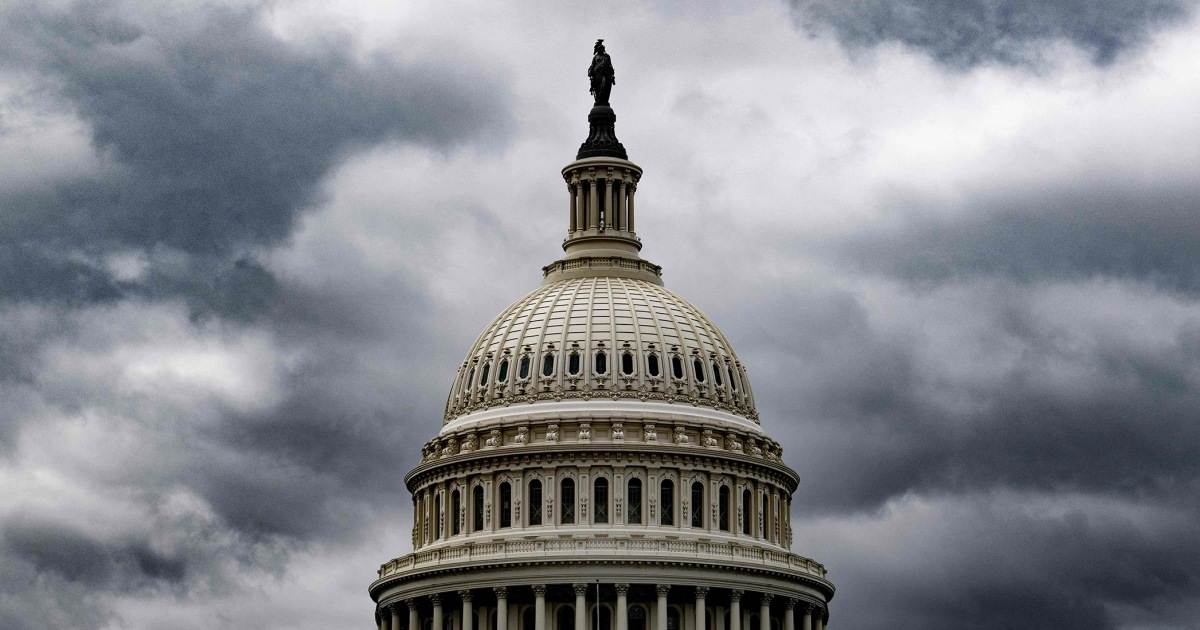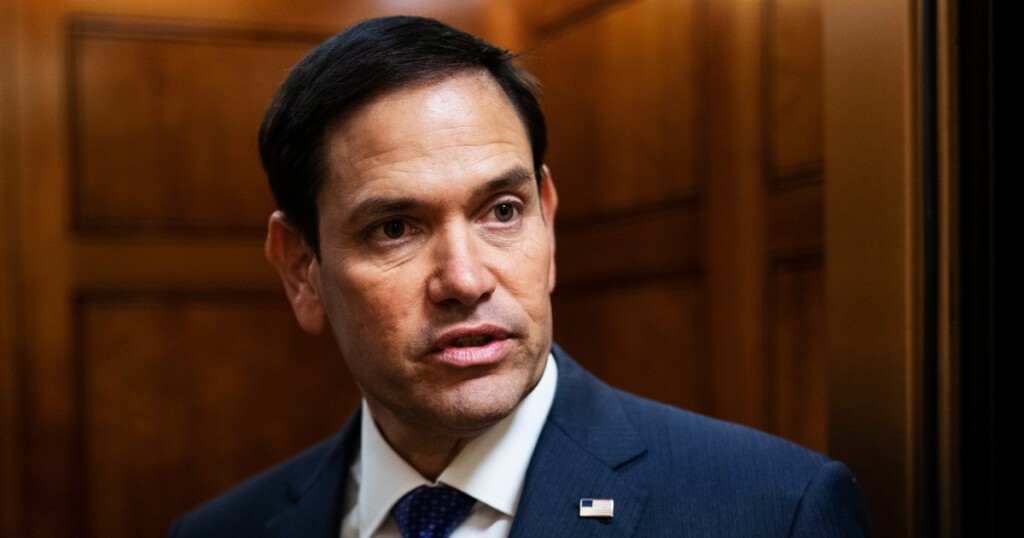If Democrats lose the Senate, their road back to the majority won’t be easy: From the Politics Desk

Politics tamfitronics
Welcome to the online version ofFrom the Politics Deskan evening newsletter that brings you the NBC News Politics team’s latest reporting and analysis from the campaign trail, the White House and Capitol Hill.
In today’s edition, senior politics editor Mark Murray examines why Democrats would have a difficult road back to the majority if they lost Senate control this year. Plus, senior national political reporter Sahil Kapur examines how Kamala Harris is attempting to take the mantle of fiscal responsibility away from the GOP.
Sign up to receive this newsletter in your inbox every weekday here.
If Democrats lose the Senate, their road back to the majority won’t be easy
By Mark Murray
Republicans are favored — though certainly not guaranteed — to gain control of the U.S. Senate this November.
Currently, Democrats (and independents who caucus with the party) hold 51 Senate seats, and Republicans have 49. So here’s the simple math: If Donald Trump loses the presidential election, Republicans need to gain two seats to win back the Senate (since the vice president casts tie-breaking votes), with West Virginia, Montana and Ohio being their top pick-up opportunities, in that order. If Trump wins, they need to gain only one seat.
And if Democrats lose control of the Senate in the fall, they face this stark reality: They don’t have an easy road back to the majority given the seats that will be up for grabs in 2026 and 2028.
This is due in large part to the geographical realignment in American politics over the past decade, with Democrats winning statewide in blue and (often) battleground states, but with Republicans dominating in red states.
Gone are the days of Democrats winning Senate seats in Arkansas, South Dakota, North Dakota and (soon) West Virginia, meaning that their opportunities to play offense will be limited if they lose control of the chamber.
In 2026, for example, there’s just one Senate Republican representing a blue state — Susan Collins of Maine — who is facing re-election. And there are just three Republicans representing presidential battlegrounds in 2026 and 2028 combined who will go before voters — Thom Tillis and Ted Budd of North Carolina, and Ron Johnson of Wisconsin.
Compare that with the six Democratic senators from battleground states who will be up for re-election in 2026 and 2028: Jon Ossoff of Georgia and Gary Peters of Michigan in 2026; and Catherine Cortez Masto of Nevada, John Fetterman of Pennsylvania, Mark Kelly of Arizona, and Raphael Warnock of Georgia in 2028.
So, on paper, the seats Democrats will have to defend appear to be more difficult than the ones Republicans do.
But there’s an important caveat: Trying to game out Senate maps two and four years from now can be problematic. There could be retirements, scandals, star recruits and fundamental changes in our politics (like we saw in 2006 and 2008, when Democrats expanded their Senate map because of the Iraq War and George W. Bush’s unpopularity).
Still, this potentially challenging Senate maps for Democrats in 2026 and 2028 — as they stand now — underscores the importance to the party of minimizing its Senate losses in November.
Democrats losing three or more 2024 seats will make it much harder to win back the Senate later in the decade than if they lose just one or two seats.
Harris seeks to flip the script on fiscal responsibility
By Sahil Kapur
Vice President Kamala Harris is attempting to claim the mantle of fiscal responsibility in the 2024 race — turf that has traditionally been staked out by the Republicans.
Harris is endorsing trillions of dollars in new tax revenues to fund her new policy plans, and her campaign is attacking former President Donald Trump for failing to outline how he’d pay for the multitrillion-dollar agenda he’s campaigning on.
Harris campaign spokesperson James Singer labeled Trump’s agenda “an inflation and deficit bomb” in a statement to NBC News, sparking a Trump campaign response blaming her for a “Biden-Harris inflation tax.”
According to nonpartisan estimates, Harris is proposing to spend about $2 trillion and raise $5 trillion in tax revenues over a decade. Trump is calling for about $5 trillion in tax breaks and spending while raising less than $3 trillion in revenue through tariffs.
“Hands down, VP Harris is being much more fiscally disciplined than President Trump,” said Mark Zandi, chief economist at Moody’s Analytics.
“It’s a clear signal that whatever the policies, they plan to be fiscally disciplined,” he said. “And that is a bit of a flip. Historically, being fiscally disciplined and focused on budget deficits has been a Republican rally cry.”
A Harris campaign spokesperson said she supports the $5 trillion in new tax revenues in the White House budget released in March, including a corporate tax rate hike from 21% to 28%, ending the Trump tax cuts for upper earners next year and an array of taxes on wealthier Americans.
Harris’ plans aimed at lowering housing, child care and prescription drug prices would cost about $1.7 trillion, according to the Committee for a Responsible Federal Budget, a research group that calls for cutting red ink.
Harris is seeking to flip the script on fiscal responsibility and build a permission structure for Trump-skeptical moderate Republicans and center-right voters to support her candidacy. She has disavowed some left-wing proposals she endorsed in 2019 as a presidential candidate, such as Medicare for All and a Green New Deal.
Marc Goldwein, senior policy director at the Committee for a Responsible Federal Budget, cautioned that the Harris campaign hasn’t earmarked all the $3 trillion for deficit reduction. And, he noted, extending Trump’s tax cuts for lower earners in 2025 would also affect her revenue-raisers.
“We just haven’t seen the full plan yet,” he said.
Read more from Sahil →
Politics tamfitronics 🗞️ Today’s top stories
- 🎤 Debate over debates: Trump suggested that he might not show up to the Sept. 10 ABC News debate with Harris after all because he said the network is hostile toward Republicans. Read more →
- ⚖️ Legal latest: Federal prosecutors asked an appeals court to restore Trump’s classified documents case, pushing back on the former president’s claims that Jack Smith’s appointment as special counsel violated the Constitution. Read more →
- 👀 Texas two-step: Several South Texas Democrats’ homes were raided as part of state Attorney General Ken Paxton’s election integrity investigation, setting up a showdown with the nation’s oldest Latino civil rights group. Read more →
- 🗳️ The Latino vote: Politico delves into the Harris campaign’s scramble to win over Latino voters, a key constituency that President Joe Biden had been struggling with before he ended his campaign. Read more →
- 🗳️ The union vote: The Trump and Harris campaigns are targeting union members, but they aren’t just staking their votes on labor issues, making a single winning message elusive. Read more →
- 🚌 On the trail: Looking to capitalize on last week’s convention, Harris and Tim Walz are hitting the campaign trail this week in Georgia, and they’re also expected to tape their first joint interview and headline multiple fundraisers. Read more →
- 👉 👈 Dueling endorsements: The Arizona Police Association endorsed Democrat Ruben Gallego over Republican Kari Lake in the state’s hotly contested Senate race after throwing its support behind Trump in the presidential contest last week. Read more →
- ⛺Woodstock for politics? Democrats gathered at “Demstock” in rural Pennsylvania over the weekend, as the party looks to stem losses in a key area in the battleground state. Read more →
- Stay up to date with the latest 2024 election developments on our live blog →
That’s all from the Politics Desk for now. If you have feedback — likes or dislikes — email us at [email protected]
And if you’re a fan, please share with everyone and anyone. They can sign up here.



 Hot Deals
Hot Deals Shopfinish
Shopfinish Shop
Shop Appliances
Appliances Babies & Kids
Babies & Kids Best Selling
Best Selling Books
Books Consumer Electronics
Consumer Electronics Furniture
Furniture Home & Kitchen
Home & Kitchen Jewelry
Jewelry Luxury & Beauty
Luxury & Beauty Shoes
Shoes Training & Certifications
Training & Certifications Wears & Clothings
Wears & Clothings
















